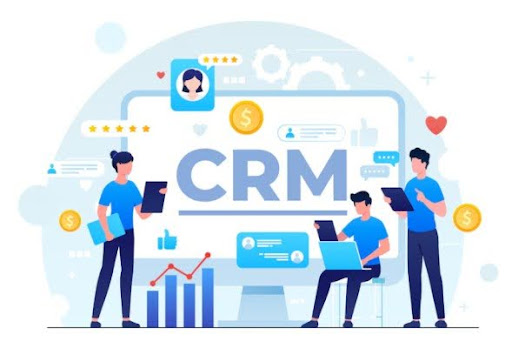The Essential Advantages of Using a CRM System for Your Business
In today’s competitive business landscape, maintaining strong relationships with customers is paramount. Regardless of the size or industry, every business must effectively manage its interactions, processes, and customer data to drive growth and stay competitive. This is where a Customer Relationship Management (CRM) system comes into play. But why exactly do businesses need a CRM system, and what advantages does it bring?
In this blog, we will delve into the importance of CRM systems and the key advantages of CRM adoption. Whether you're a small business or a large corporation, investing in a CRM can streamline your processes, improve customer satisfaction, and ultimately drive more revenue.
What is a CRM System?
A CRM system is software designed to manage all your company’s relationships and interactions with customers and potential customers. The main goal is to improve business relationships, leading to customer retention and sales growth. CRMs provide a centralized platform where customer data is stored, tracked, and managed efficiently, helping businesses engage with customers, streamline workflows, and analyze data for improved decision-making.
The Importance of CRM for Businesses

The importance of CRM cannot be overstated, especially in an era where customer-centricity is a crucial driver of success. As companies grow, managing customer data, sales pipelines, and marketing strategies can become increasingly complex. A CRM system acts as a powerful tool to handle these complexities, making it an essential asset for business growth.
Key points to consider include:
Customer-Centric Approach: With a CRM, businesses can maintain a customer-focused strategy, ensuring that interactions are tailored to meet the specific needs of each customer.
Data Management: It helps organize and store customer data in one place, ensuring that no information is lost and that team members have access to real-time data when needed.
Scalability: As your business grows, a CRM system can easily scale to manage a growing number of customer interactions, helping you maintain a high level of service.
Now that we understand the basics of what a CRM is and its importance, let’s dive deeper into the benefits of CRM systems.
Key Benefits of CRM Systems
Improved Customer Relationships
One of the most significant benefits of CRM is the ability to improve relationships with your customers. With access to a centralized customer database, your team can view all interactions, preferences, and history at a glance. This enables more personalized communication and better service, ultimately leading to greater customer satisfaction and loyalty.
Personalization: By analyzing past interactions, CRMs allow businesses to tailor their messaging and offers to individual customers. This personalized approach enhances the customer experience.
Consistency: CRMs ensure that every team member has the same customer information, ensuring a consistent experience no matter who the customer interacts with.
Enhanced Data Management and Organization
The sheer amount of data that businesses accumulate can be overwhelming. A CRM system streamlines the process of collecting, storing, and organizing this data, making it easily accessible to your team when needed.
Centralized Data Hub: All customer information, including contact details, purchase history, and preferences, is stored in one place.
Data Accuracy: CRMs reduce human errors and ensure that data is accurate and up to date, improving decision-making and targeting.
Increased Sales and Revenue

Another significant advantage of CRM is its ability to boost sales by managing the sales pipeline more effectively. CRM systems enable your sales team to track leads, monitor progress, and manage deals more efficiently.
Lead Management: CRMs help businesses prioritize and manage leads, ensuring that the most promising opportunities are followed up promptly.
Sales Forecasting: With insights into historical sales data and trends, businesses can accurately forecast future sales, allowing them to plan more effectively.
Automation: Many CRMs offer automation features, such as sending follow-up emails, reminders, and task management, helping sales teams focus more on selling and less on administrative work.
Improved Customer Retention
The importance of CRM in customer retention cannot be overstated. CRM systems allow businesses to maintain ongoing communication with existing customers, addressing their needs and concerns promptly.
Automated Follow-Ups: CRMs can automate customer follow-ups, ensuring no customer is neglected after a sale.
Loyalty Programs: By tracking customer behavior, CRMs can be used to create loyalty programs that reward long-term customers and encourage repeat business.
Better Collaboration Across Teams
A CRM system doesn’t just benefit your sales team. It acts as a unified platform that integrates your marketing, sales, and customer support teams, ensuring seamless collaboration.
Shared Data: Every department has access to the same customer data, eliminating silos and fostering teamwork.
Workflow Automation: CRMs can automate workflows, such as lead assignment, customer follow-up, or task reminders, ensuring smooth handovers between teams.
Efficient Marketing Campaigns
For marketing teams, a CRM system provides valuable insights into customer behavior, preferences, and trends, allowing them to create targeted campaigns that resonate with their audience.
Segmentation: CRMs allow businesses to segment their customer base based on various factors such as age, location, and purchasing behavior. This segmentation ensures more targeted and effective marketing campaigns.
Performance Tracking: CRMs provide detailed reports on the performance of marketing campaigns, allowing marketers to tweak strategies for better results.
Advantages of CRM Systems for Decision-Making
A CRM system not only aids in customer management but also plays a pivotal role in business decision-making. One of the key advantages of CRM is its powerful analytics and reporting features, providing businesses with valuable insights into their operations, customer behavior, and market trends.
Data-Driven Insights
CRMs offer valuable insights through customizable reports and dashboards, providing businesses with the data needed to make informed decisions. These insights allow businesses to:
- Identify trends in customer behavior
- Track sales performance
- Optimize marketing efforts
- Customer Feedback
CRMs make it easier to gather and analyze customer feedback, providing valuable insights into what your customers like and what areas need improvement.
Real-Time Reporting
With real-time reporting capabilities, CRM systems allow businesses to make timely adjustments to their sales and marketing strategies, optimizing their overall performance.
The Importance of CRM in a Competitive Market
In an increasingly competitive market, businesses need to adopt technology that allows them to stay ahead. The importance of CRM lies in its ability to provide businesses with a complete view of their customers and processes, allowing for a more strategic approach to sales, marketing, and customer service.
Competitive Edge
With a CRM, you can provide a more personalized, customer-centric experience, which can give you an edge over competitors who may still be relying on manual processes or outdated systems.
Scalability
As your business grows, a CRM can grow with you. It’s a scalable solution that can adapt to increasing customer data, sales pipelines, and marketing needs without causing disruptions.
Conclusion
The benefits of CRM systems are undeniable, from improving customer relationships and enhancing data management to boosting sales and streamlining marketing efforts. The importance of CRM lies in its ability to empower businesses to manage their interactions more effectively and make data-driven decisions that enhance growth and competitiveness.
For businesses aiming to build long-lasting customer relationships, improve internal collaboration, and increase revenue, investing in a CRM system is no longer optional—it’s essential. With the right CRM in place, you can transform the way your business operates and ensure long-term success.
